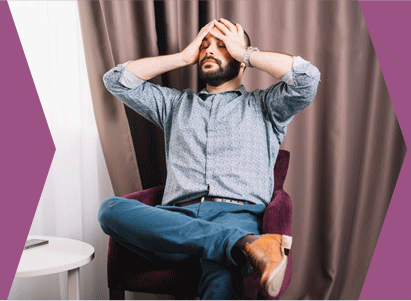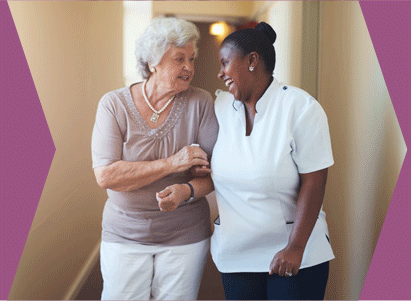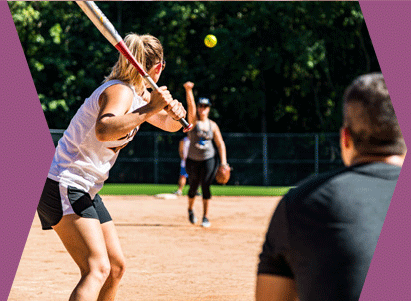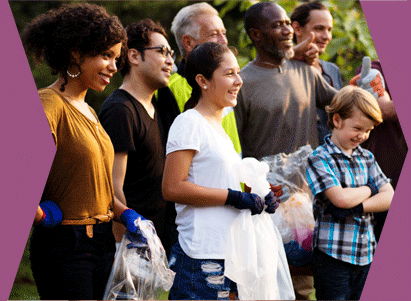You are here
4Mind4Body: Social Connections and Recreation

Finding other people to relate to and doing things that bring you enjoyment are great ways to improve your mood and overall mental health.
LONELINESS IS BAD FOR YOUR HEALTH
| Being lonely cause the same amount of damage to your lifespan as smoking 15 cigarettes a day and is more dangerous to health than obesity. [1] |  |
Loneliness is associated with a higher risk of high blood pressure in older people. [2] |
| Poor social supports make it harder to recover from mental illnesses, while a strong social support system improves overall outcomes and the ability to bounce back from stress. [3] |  |
Women diagnosed with breast cancer who had weak social support systems before treatment had more pain and symptoms of depression over time than those who started treatment with strong social support systems. [4] |
SOCIAL INTERACTION AND RECREATION ARE ALL AROUND GOOD FOR YOU
| People with strong social relationships are 50% more likely to live longer. [5] |  |
People who do things in nature have better perceptions of their own emotional well-being. [6] |
| Taking a vacation can help you to feel happier and less stressed for a while. Even short vacations help! [7] |  |
Adolescents who participate in sports have lower odds of suffering from depression or thinking about suicide, likely because sports increase self-esteem and social support. [8] |
| One study showed that people who participated in leisure activities like reading, playing board games, playing musical instruments, and dancing were less likely to develop dementia. [9] |  |
Participating in outdoor recreation decreases symptoms of depression in people with disabilities. [10] |
| People with schizophrenia and other serious mental illnesses who participated in MHA’s It’s My Life Social Self-Directed Care Program experienced increased quality of life across 12 different measures and a drastic reduction in hospitalization rates. | ||
CONSIDERATIONS FOR CAREGIVERS
 |
Feelings of loneliness and isolation are common among caregivers. [11] |
 |
Adult day care and other respite programs can help reduce the demands on caregivers which may improve morale and allow more time for social and recreational activities. [12] |
TIPS FOR FINDING FRIENDS AND THINGS TO DO
 |
Look for rec sports leagues in your community. Softball, kickball, and flag football are pretty common. Depending upon where you live you may be able to find other games like bocce ball, skee ball, or shuffleboard as well. |
Check meetup.com. This website has groups all over the country that are based around specific activities or interest areas. |
 |
 |
Volunteer! Volunteermatch.org has a database of opportunities across a variety of causes, nationwide |
Take a class. Check out your local parks and recreation department or look at national chain stores like Michaels or Home Depot that offer classes and events. |
 |
SHARE YOUR EXPERIENCES WITH #4MIND4BODY
Mental Health America has created a space where people can learn from each other about what they do to stay well.
Tell us how you work fun and friendships into your life by posting with #4mind4body.
We’ll collect your Twitter and Instagram posts at www.mentalhealthamerica.net/4mind4body. You can also post directly and anonymously to the site if you would like.
ARE YOU STRUGGLING?
If you are taking steps to care for your mind, body, and soul but still feel like you are struggling with your mental health, visit www.mhascreening.org to check your symptoms. It’s free, confidential, and anonymous. Once you have your results, MHA will give you information and help you find tools and resources to feel better.
SOURCES
1 2018 Cigna U.S. Loneliness Index. Retrieved from https://www.cigna.com/assets/docs/newsroom/loneliness-survey-2018-full-report.pdf. 2 Hawkley LC, Thisted RA, Masi CM & Cacioppo JT. (2010). Loneliness predicts increased blood pressure: 5-year cross-lagged analyses in middle-aged and older adults. Psychology and Aging. 25(1):132-141.
3 Ozbay, F., Johnson, D. C., Dimoulas, E., Morgan III, C. A., Charney, D., & Southwick, S. (2007). Social support and resilience to stress: from neurobiology to clinical practice. Psychiatry (Edgmont). 4(5):35.
4 Hughes, Spencer, et al. (2014). Social support predicts inflammation, pain, and depressive symptoms: longitudinal relationships among breast cancer survivors. Psychoneuroendocrinology. 42:38-44.
5 Holt-Lunstad J, Smith TB, Layton JB (2010) Social Relationships and Mortality Risk: A Meta-analytic Review. PLoS Med 7(7): e1000316.
6 Korpela K, Tyrväinen L. (2014). Analyzing the mediators between nature-based outdoor recreation and emotional well-being. Journal of Environmental Psychology. 37: 1-7.
7 Chen, C.-C., & Petrick, J. F. (2013). Health and Wellness Benefits of Travel Experiences: A Literature Review. Journal of Travel Research.
52(6):709–719.
8 Babiss, LA & Gangwisch JE. (2009). Sports Participation as a Protective Factor Against Depression and Suicidal Ideation in Adolescents as Mediated by Self-Esteem and Social Support. Journal of Developmental & Behavioral Pediatrics. 30(5):376-384.
9 Verghese J, Lipton RB, et al. (2003). Leisure Activities and the Risk of Dementia in the Elderly. The New England Journal of Medicine.
348:2508-2516.
10 Wilson JF & Christensen KM. (2012). The Relationship Between Outdoor Recreation and Depression Among Individuals With Disabilities. Journal of Leisure Research. 44(4):486-506.
11 Soylu, C., Ozaslan, E., Karaca, H., & Ozkan, M. (2016). Psychological distress and loneliness in caregiver of advanced oncological inpatients. Journal of Health Psychology. 21(9):1896–1906.
12 Kosloski, K., & V., R. J. (1993). The Effects of Respite on Caregivers of Alzheimer’s Patients: One-Year Evaluation of the Michigan Model Respit Programs. Journal of Applied Gerontology. 12(1)4-17.








this page